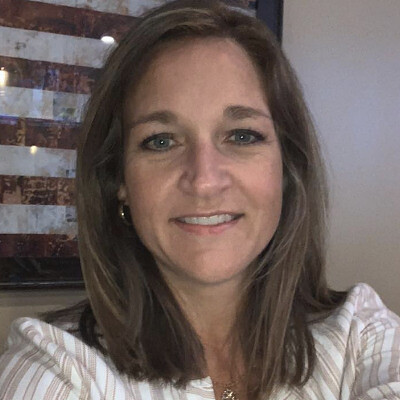Introduction: Faculty burnout and student distress are reaching a crisis point in healthcare education. The causes are multiple and global. Recent data show that 64% of faculty experience work-related burnout, with 19% reporting a high degree and 15% a very high degree of burnout. Students are navigating persistent post-pandemic fatigue, mental health concerns, financial pressures, and academic challenges. Many faculty feel underprepared to address students in difficulty, especially when issues are sensitive and involve suicidality, mental health disorders, or Title IX concerns. In response to this need, we developed an interprofessional, simulation-based faculty development series to prepare educators to effectively respond to struggling students. This aligns with Building the Evidence Base for IP Practice and Education as an “intervention that promotes workforce, and future workforce, wellbeing and retention.”
Methods: Guided by local needs assessment, we convened an interprofessional workgroup of educators, mental health professionals, Title IX experts, and simulation leaders. Iterative design meetings developed three structured modules to address: (1) General principles to manage students in difficulty, (2) Suicide and suicidality, and (3) Title IX issues (pregnancy, lactation, sexual harassment, and assault). Learning objectives emphasized communication skills, resource awareness, and support strategies. Simulation scenarios were informed by authentic lived experience and designed to protect psychological safety for learners and standardized patients (SPs).
Results: The series has been delivered to faculty learners across multiple colleges, with strong uptake and positive feedback. Modifications were incorporated in response to participant input including integrating training on the university’s “Missing Student Policy” and refining facilitator guidance for complex emotional content. Participants consistently reported increased confidence in handling student distress and emphasized the real-world value of the simulations. One participant stated, “The one takeaway for me was the importance of providing resources, not solutions.” A train-the-trainer model is being implemented to expand the reach to additional campuses.
Conclusions:
This program addresses a critical need: preparing faculty to support increasingly distressed learners while managing their own professional well-being. It exemplifies the Summit theme by fostering collaborative IPE solutions to academic and mental health challenges. We describe how interprofessional collaboration can address a complex educational need for the benefit of faculty and students while protecting the psychological safety of participants and empowering faculty to promote better care and education. This fulfills priority criteria by enhancing the capacity of health professions educators to support learning and wellbeing in academic and community environments to build stronger, more effective healthcare teams.
In support of improving patient care, this activity is planned and implemented by The National Center for Interprofessional Practice and Education Office of Interprofessional Continuing Professional Development (National Center OICPD). The National Center OICPD is accredited by the Accreditation Council for Continuing Medical Education (ACCME), the Accreditation Council for Pharmacy Education (ACPE), and the American Nurses Credentialing Center (ANCC) to provide continuing education for the healthcare team.
As a Jointly Accredited Provider, the National Center is approved to offer social work continuing education by the Association of Social Work Boards (ASWB) Approved Continuing Education (ACE) program. Organizations, not individual courses, are approved under this program. State and provincial regulatory boards have the final authority to determine whether an individual course may be accepted for continuing education credit. The National Center maintains responsibility for this course. Social workers completing this course receive continuing education credits.
The National Center OICPD (JA#: 4008105) is approved by the Board of Certification, Inc. to provide continuing education to Athletic Trainers (ATs).
This activity was planned by and for the healthcare team, and learners will receive Interprofessional Continuing Education (IPCE) credit for learning and change.


Physicians: The National Center for Interprofessional Practice and Education designates this live activity for AMA PRA Category 1 Credits™. Physicians should only claim credit commensurate with their participation.
Physician Assistants: The American Academy of Physician Assistants (AAPA) accepts credit from organizations accredited by the ACCME.
Nurses: Participants will be awarded contact hours of credit for attendance at this workshop.
Nurse Practitioners: The American Academy of Nurse Practitioners Certification Program (AANPCP) accepts credit from organizations accredited by the ACCME and ANCC.
Pharmacists and Pharmacy Technicians: This activity is approved for contact hours.
Athletic Trainers: This program is eligible for Category A hours/CEUs. ATs should claim only those hours actually spent in the educational program.
Social Workers: As a Jointly Accredited Organization, the National Center is approved to offer social work continuing education by the Association of Social Work Boards (ASWB) Approved Continuing Education (ACE) program. Organizations, not individual courses, are approved under this program. State and provincial regulatory boards have the final authority to determine whether an individual course may be accepted for continuing education credit. The National Center maintains responsibility for this course. Social workers completing this course receive continuing education credits.
IPCE: This activity was planned by and for the healthcare team, and learners will receive Interprofessional Continuing Education (IPCE) credits for learning and change.
Learners can claim CE credit by completing the Daily Evaluation.




